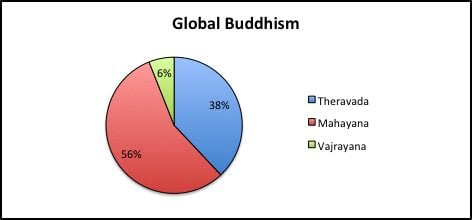Back in July of this year, I posted a rather lengthy blog entry entitled “The Colorado Shooter & The Problem of Evil.” It reflected upon how a gunman who had opened fire in an Aurora, Colorado movie theater, killing 12 people and wounding 58 others, served as a vivid and painful reminder of the degree to which senseless evil and profound suffering seem to be an inherent feature of the very fabric of human existence.
Now, a gunman has opened fire in a Newtown, Connecticut elementary school, killing 26 people. Twenty of the victims were first graders, aged 6 and 7.
Prior to his deadly rampage at Sandy Hook Elementary School, the gunman also killed a 27th victim: his mother.
The death count at the school might have been far higher, had police not arrived so quickly. Upon hearing officers closing in, the killer cut short his massacre by taking his own life.
So many lives tragically lost. So many young lives cut painfully short. So much trauma endured by survivors who narrowly escaped death themselves. So much unimaginable heartache to be endured henceforth by those who lost loved ones. So much innocence lost. So much sense of security shattered. So much innocent pain and deep anguish.
This is evil. This is suffering. And in the face of such evil and suffering, human beings can only ask themselves, “Why?”
Why do we live in a world within which such things can happen at all? Why do we live in the kind of universe wherein such untold pain and suffering can even exist as possibilities in the first place? Who set things up this way? What were they thinking?
At times of tragedy or injustice, and in the face of seemingly senseless suffering, many turn to religion or spirituality for answers, or at least for comfort. And religious people have been asking God “why?” in such situations for a very, very long time.
If the universe was created by God, why did God choose to create the sort of universe within which the possibility of suffering (especially suffering of this sort of magnitude) was built into it — seemingly intentionally, and as if by design?
The classic and perennial problem of evil, simply stated, amounts to this: if God is genuinely omnibenevolent (all good), as well as truly omnipotent (all powerful), then how is it even logically possible that evil and suffering could exist at all?
Why would an infinitely loving and infinitely powerful Supreme Being tolerate the existence of any evil whatsoever in any universe He/She/It created? What could justify, or account for, the existence of any amount at all of pain and suffering in such a divinely created universe — let alone pain and suffering of the magnitude endured by the victims, and their loved ones, of senseless mass slaughters in elementary schools or movie theaters?
Abstract armchair theologizing is one thing. But events such as Sandy Hook, Aurora, Columbine, and too many similar senseless slaughters bring a concrete immediacy and a personal urgency to what can otherwise seem like little more than abstruse, remote, and purely academic arguments about the nature of the divine. Real pain and intense suffering hits us not just in our heads, but also in our hearts, putting an all-too-human face upon the all-too-real problem of evil.
Such excruciating events serve to highlight and underscore, in deeply personal and immensely painful terms, the difficult conundrum faced by many people of faith whenever tragedy strikes. Why does a supremely good and all-loving God tolerate the existence of such evils? Why does a supremely mighty and all-powerful Creator permit such untold levels of pain and suffering to plague and torment his beloved creatures? Why does a heavenly Parent tolerate abuses of his earthly children that no human parent would ever imagine allowing his or her own children to endure?
In the wake of such tragic events and haunting questions, and in the light of the deeply troubling reality of evil and suffering, some reflective people find their faith honestly called into serious question. Some, like bestselling author and New Testament scholar Bart D. Ehrman, are ultimately forced to conclude that their own prior faith in the existence of such a God can no longer withstand rational scrutiny. Many atheists and agnostics have found the problem of evil to be a theologically insoluble one. For them, the disturbingly profound reality of evil, and the sheer magnitude of suffering, amount to fatal blows against theism and faith.
Others, perhaps almost paradoxically, instead find their faith strengthened, and frequently turn toward it with even greater zeal. Despite perhaps not having satisfactory logical answers to such probing questions as those raised by the problem of evil, such people of faith persist nevertheless in maintaining — if only by sheer faith alone — that such answers ultimately must exist, even if they may lie beyond human ken.
Whatever their final effect upon any individual, such terrible and shattering events as these at least draw many of us toward ever deeper levels of introspection, as we are compelled more than ever to reflect upon the very nature of, and the ultimate religious meaning or spiritual significance of, such painful human realities as the existence of evil and suffering.
Current events can have a profoundly compelling way of drawing our attention to what might otherwise seem like mere armchair theorizing and purely academic argumentation. Tragedies of the sort that we all too often see in the news (and that directly befall far too many innocent victims) have a way of removing such seemingly abstract questions and problems from the realm of comfortably remote, merely abstract, and at-arms’-length philosophizing, forcing us instead to confront them squarely, concretely, and from the very depths of our being.
For more (much more) on the problem of evil, read my previous blog entry on the Colorado theater mass shooting.

